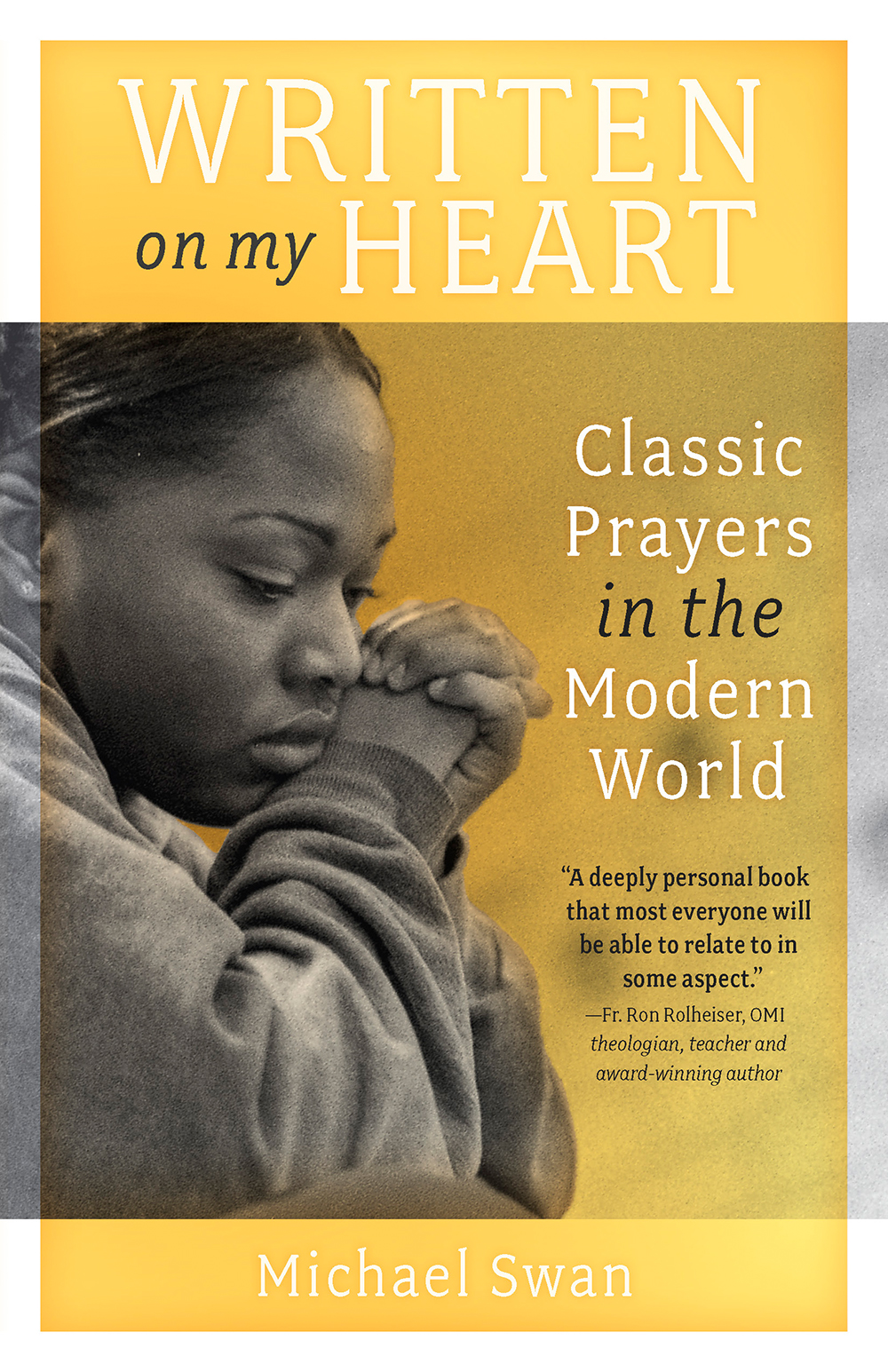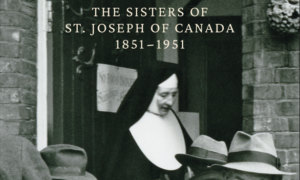
BOOK REVIEW: WRITTEN ON MY HEART: CLASSIC PRAYERS IN THE MODERN WORLD

Who is God? For most of my life I have used the tradition of the Church and its liturgy as the best approximation for understanding who God is. My former students will recall: the liturgy teaches us that God dispenses grace with a bucket, not an eye-dropper; that for God, the tie goes to the runner, and so on. Well in Michael Swan’s book, Written on My Heart: Classic Prayers in the Modern World, I have been brought face-to-face with a new way of meeting God, of defining who God is by what the author says to God on a daily basis. And in the process of reading how Swan prays, I have met the good God who guides his life. I encourage you to do the same.
I have always thought that the proofs for the existence of God proposed by theologians were mostly pretty silly. This book is not an attempt to prove that God is, nor is it trying to sell you on a specific path or prayer or make you believe in any version of theology. And yet, by looking seriously at the origins of his favorite daily prayers, and reflecting on the personal power he has drawn from them, Swan will accidentally introduce you to the power that gives him life, a power I would call God.
His warm writing style takes you on an adventure and introduces you to people he seems to know as old friends: from popes and evangelists to ordinary people doing extraordinary things, to saints and to the great author, anonymous. Swan not only knows the texts of these basic prayers, he knows these friends, and believes that the context in which these prayers came into existence speaks the meaning of the words just as much as the words themselves.
When he introduces us to the Mother of God, we meet a siren standing on the heights and shouting for the rights of the underprivileged, of all holy creatures of God’s design. At the same time she is one whose womb is open to our struggles, our joys, and our destiny at the hour of our death. For the author there is no more intimate partner for his prayer.
There are surprises throughout this text. Some are accidents of history. In the prayer attributed to Pope John XXII, Swan had me convinced it was written by an anonymous woman who gave up everything for Jesus. The Peace Prayer of St. Francis finds its origins only in the last century. There is no attempt to convince us of anything, simply a description of what one finds in the historical record.
Speaking of the truth, it is in his description of the life and prayer of Zechariah, the father of John the Baptist, that the truth of our ultimately anonymous lives will, like the life of what he describes as an irrelevant genealogical dead end come into focus. We, like Zechariah, need to be silenced by God’s angel so that we can learn to speak anew the words of truth. Speaking the truth is what changed Zechariah into someone who is known, relevant, and the father of a prayer that is still prayed each morning by millions.
I think this may be the first book review I have ever written. It is certainly the first one in decades. I write it because you need this book. You need to look at the pictures, mostly of women at prayer. You need to meet these prayers in their contexts, either as old friends or as new challenges for your life of prayer. From the outset the author makes it clear that his not about the business of telling you how to pray, but in reading about what he prays and why he prays, a beautiful image of God will come your way, the God of invitation to conversation and conversion, the God of grace. I believe it will give you some tools for your own journey. It has for mine.
–Glenn Byer has been making music for the Mass for 40 years, and has been writing about and offering courses and workshops on liturgy for more than 30 years. He holds a Master’s in liturgy from the University of Notre Dame, and a doctorate in liturgy from the Pontifical Institute for Liturgy at the Atheneaum of Sant’Anselmo in Rome. Glenn has written numerous books, some of which include 26 Ordinary Ways to Live the Liturgy, Unlocking the Feasts and Seasons of the Liturgical Year and Living the Liturgy of the Word.


